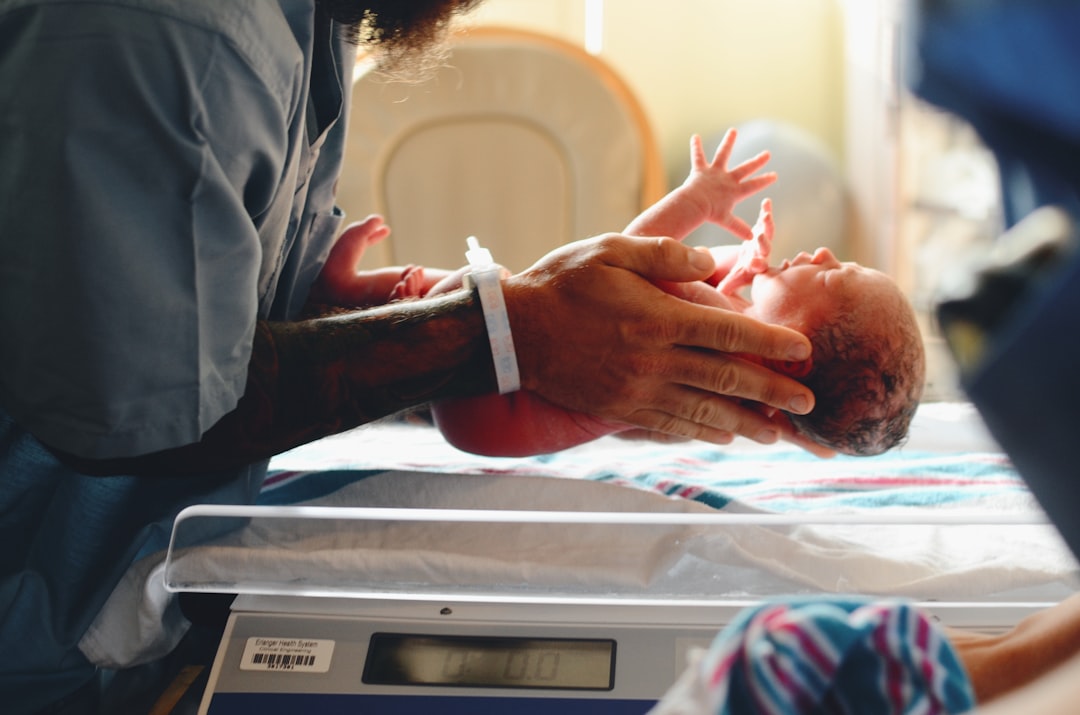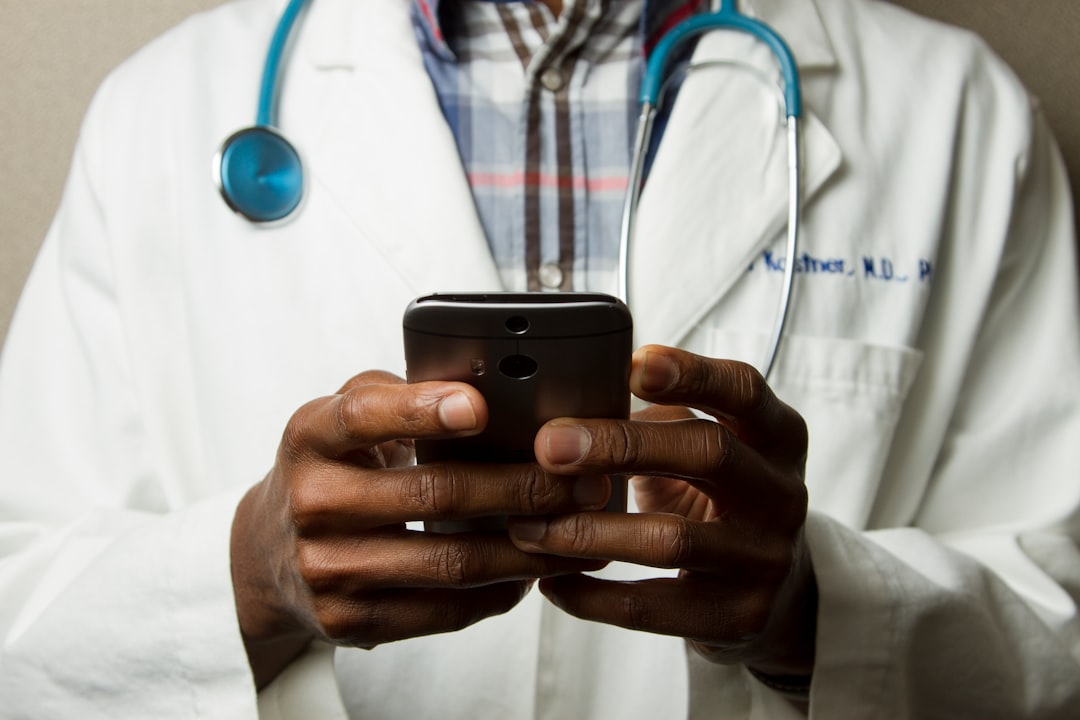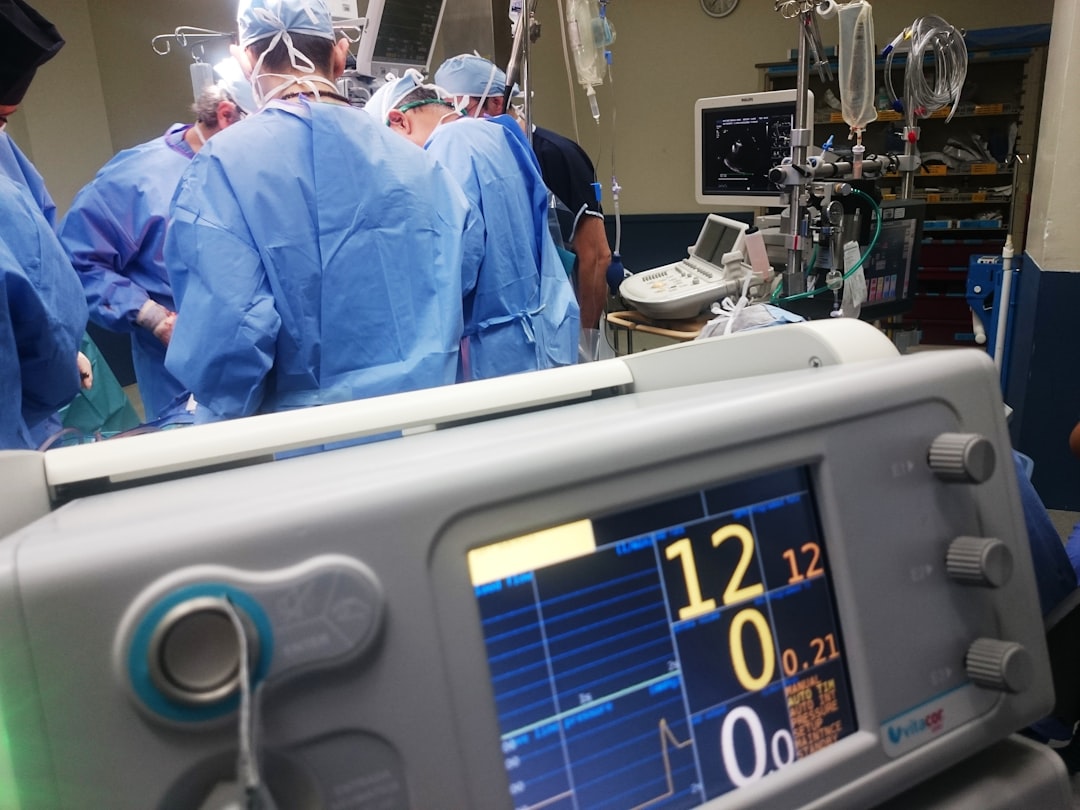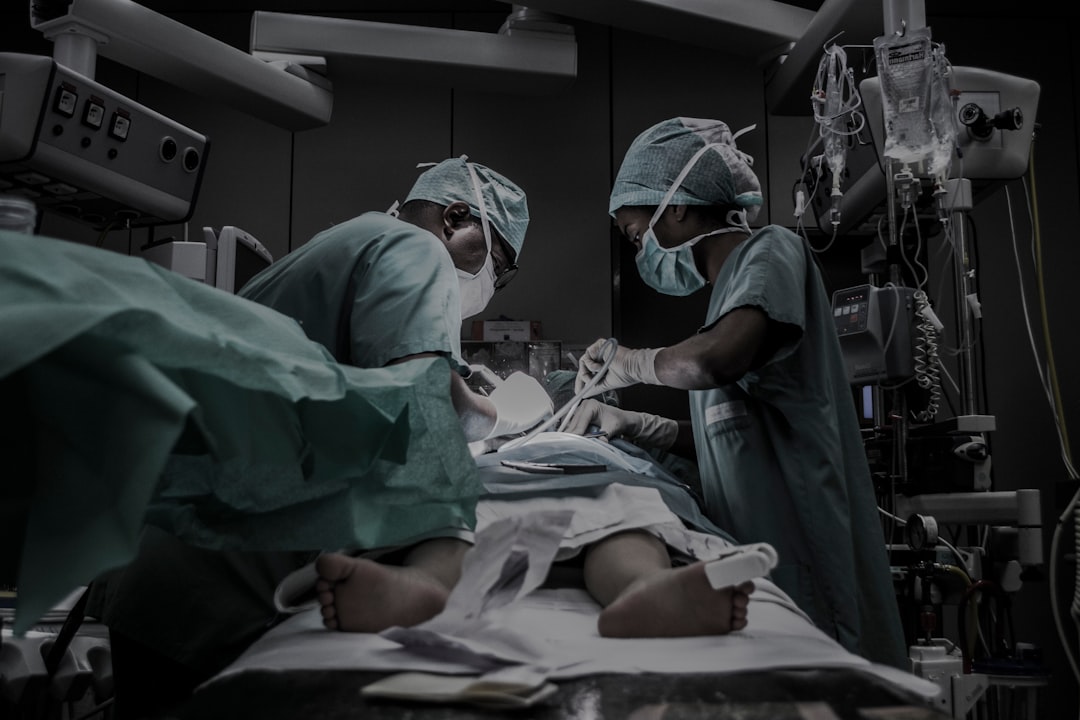

The qualifications and selection of a medical expert for the purpose of providing expert medical testimony is an intricate process that holds significant weight in legal proceedings. The role of such an expert is pivotal, often influencing the verdict by elucidating complex medical issues in a manner comprehensible to the court. Consequently, ensuring that the selected medical expert possesses both the appropriate qualifications and requisite experience is paramount.
First and foremost, the educational background of a potential medical expert is scrutinized meticulously. This includes their formal education, degrees obtained, and any specialized training they have undergone. Typically, an individual with advanced degrees in medicine or relevant sub-specialties stands out as a credible candidate. For instance, if the case involves neurological injuries, a neurologist with substantial clinical experience would be deemed more suitable over a general practitioner.
Beyond academic credentials, practical experience plays a crucial role in establishing expertise. A seasoned professional who has spent years practicing medicine will likely possess deeper insights compared to one who has limited hands-on experience. This practical knowledge extends beyond patient care; it encompasses familiarity with current standards of medical practice and advancements within their field.
Board certification serves as another critical marker of qualification. Board-certified physicians have demonstrated proficiency in their specialty through rigorous examinations and continuous education requirements. Such certification assures the court that the expert maintains up-to-date knowledge and adheres to high professional standards.
The credibility of a medical expert is further reinforced through their professional affiliations and contributions to their field. Membership in esteemed medical organizations or active participation in research reflects ongoing engagement with evolving medical science. Publications in peer-reviewed journals indicate that the expert's opinions are respected within the scientific community.
However, qualifications alone do not suffice; effective communication skills are equally vital for an expert witness. The ability to convey complex medical concepts clearly and persuasively to non-medical professionals-including judges and jurors-is indispensable. An adept expert can bridge the gap between technical jargon and lay understanding, thereby aiding the court in making informed decisions.
Moreover, impartiality is essential when selecting a medical expert. The chosen individual must demonstrate objectivity, presenting facts without bias or predisposition towards either party involved in litigation. Their primary duty lies in assisting the court by providing truthful, evidence-based testimony rather than advocating for one side.
Finally, prior experience as an expert witness can be advantageous but should be weighed carefully against potential biases arising from frequent courtroom appearances. An experienced witness might navigate legal procedures more smoothly; however, they must remain unbiased and avoid becoming perceived as professional witnesses.
In conclusion, selecting a qualified medical expert necessitates thorough vetting encompassing educational achievements, clinical experience, board certifications, professional affiliations, communication skills, objectivity, and prior testimonial experiences. Each aspect contributes uniquely towards ensuring that the testimony provided will be both credible and comprehensible-ultimately aiding judicial processes by shedding light on intricate medical matters with clarity and precision.
The Role and Responsibilities of Medical Experts in Legal Cases
Medical experts play a pivotal role in the legal system, providing specialized knowledge that helps to bridge the gap between complex medical concepts and the more generalized understanding of judges and juries. Their involvement can be crucial in both civil and criminal cases, where their expertise can illuminate issues ranging from personal injury claims to questions about mental health or cause of death. The responsibilities of these experts are multifaceted, requiring not only profound medical knowledge but also a keen understanding of legal principles and ethical considerations.
One primary role of medical experts is to offer expert testimony that elucidates medical facts pertinent to a case. This involves conducting thorough reviews of medical records, performing independent examinations if necessary, and synthesizing their findings into clear, comprehensible reports. These reports must be meticulously detailed, as they often become critical pieces of evidence upon which legal arguments are built. The ability to translate complex medical jargon into layman's terms cannot be overstated; it ensures that all parties involved-attorneys, judges, jury members-can grasp the nuances of the case.
In courtrooms, medical experts may be called upon to testify under oath. Here, their responsibilities expand beyond simply presenting facts; they must also withstand rigorous cross-examinations by opposing counsel aimed at scrutinizing their credibility and challenging their conclusions. It is during these moments that an expert's communication skills are tested most stringently. They must remain composed, articulate, and unwavering in their objectivity while defending their professional opinions against potentially aggressive questioning.
Another significant responsibility is maintaining impartiality. Unlike advocates who have vested interests in winning a case for their clients, medical experts must adhere strictly to objective truths derived from scientific evidence and clinical experience. Their allegiance lies with factual accuracy rather than any party involved in litigation. This commitment to impartiality reinforces the integrity of both the medical profession and the judicial process.
Ethical considerations also loom large for medical experts. Confidentiality is paramount; any breach could not only jeopardize a case but also harm individuals' privacy rights. Experts must navigate these ethical waters carefully while still fulfilling their duty to provide comprehensive information relevant to a case.
Moreover, continuous education is vital for maintaining credibility as an expert witness. Medicine is an ever-evolving field; new research findings and technological advancements constantly reshape our understanding of health conditions and treatments. Staying updated ensures that an expert's testimony remains current and scientifically valid.
Lastly, documentation plays an essential role in an expert's responsibilities. Detailed notes taken during evaluations or reviews can serve as references during testimonies or depositions and help counteract any claims of bias or inconsistency.
In conclusion, the role of medical experts in legal cases extends far beyond mere consultation; it encompasses being educators, communicators, ethical guardians, and unwavering pillars of objectivity within the judicial system. Their contributions are indispensable for ensuring that justice is informed by accurate scientific knowledge-a cornerstone upon which fair legal outcomes are often built.
Winning a medical malpractice case is no small feat.. It requires a meticulous blend of legal acumen, compelling evidence, and emotional resonance.

Posted by on 2024-09-18
When facing the daunting task of pursuing a medical malpractice case, finding a top-notch attorney becomes crucial.. The initial consultation is your golden opportunity to gauge whether an attorney has the expertise and dedication required to handle such a complex matter.

Posted by on 2024-09-18
When facing the unfortunate aftermath of medical negligence, it's natural to feel overwhelmed and uncertain about how to protect your rights effectively.. One of the key strategies you can employ is to consider mediation or settlement negotiations.

Posted by on 2024-09-18
Failure to Treat or Inadequate Treatment: A Common Type of Medical Malpractice The relationship between a patient and a healthcare provider is built on trust, with the expectation that medical professionals will use their knowledge and skills to provide the best possible care.. However, when this trust is breached through failure to treat or inadequate treatment, it can lead to severe consequences for patients.

Posted by on 2024-09-18
Choosing the right medical malpractice lawyer can be a daunting task.. The stakes are high, and your choice of legal representation can make a significant difference in the outcome of your case.

Posted by on 2024-09-18
Expert medical testimony is a crucial component in the intersection of law and medicine. This process involves a qualified medical professional providing specialized knowledge to assist the court in understanding complex medical issues that are beyond the general knowledge of judges and jurors. The testimony can play a pivotal role in both civil and criminal cases, influencing the outcome significantly.
The first step in providing expert medical testimony is selecting an appropriate expert witness. This individual must possess not only extensive knowledge and experience in their field but also the ability to communicate complex medical concepts clearly and effectively. The selection process often involves verifying credentials, reviewing past testimonies, and ensuring that there are no conflicts of interest that might compromise the integrity of the testimony.
Once an expert witness is selected, they typically begin with a thorough review of all relevant medical records, case files, and any other pertinent documents. This preparatory phase is essential for forming a well-informed opinion about the case at hand. The expert may also conduct interviews with involved parties or perform physical examinations if necessary.
Following this detailed evaluation, the expert will prepare a written report summarizing their findings, opinions, and conclusions. This report serves as a foundational document that outlines the basis for their testimony. It must be meticulously crafted to withstand scrutiny from opposing counsel during cross-examination.
During trial proceedings, the expert witness will take the stand to present their testimony under oath. Their primary role is to provide clear explanations of medical facts and offer informed opinions on matters such as injury causation, standard of care deviations, or long-term prognosis for patients. The clarity with which they convey this information is vital; it helps ensure that jurors who lack medical training can understand complex topics sufficiently to make informed decisions.
Cross-examination by opposing counsel is a critical aspect of this process. The goal here is often to challenge the credibility or reliability of the expert's opinions by probing for inconsistencies or questioning methodologies used in forming those opinions. A resilient expert witness will anticipate these challenges and respond confidently based on solid evidence and sound reasoning.
Ultimately, effective expert medical testimony hinges on more than just scientific accuracy; it requires persuasive communication skills, ethical integrity, and an unwavering commitment to objectivity. An ideal expert witness remains dispassionate yet empathetic-focused solely on presenting truthful information without succumbing to bias or external pressures.
In conclusion, providing expert medical testimony is an intricate blend of science and law where expertise meets eloquence under judicial scrutiny. It demands rigorous preparation backed by substantial clinical experience while emphasizing transparent communication tailored for non-medical audiences like juries or judges. Through this delicate balance between technical precision and accessible explanation lies its profound impact-potentially tipping scales toward justice by illuminating truths otherwise obscured within layers of specialized knowledge.

Expert medical testimony plays a pivotal role in courtroom proceedings, often serving as the linchpin for decisions that can significantly impact the lives of individuals. However, medical experts who step into the legal arena face a multitude of challenges that can complicate their ability to provide clear, unbiased, and comprehensive testimony.
One of the primary challenges faced by medical experts in courtrooms is the complexity of translating intricate medical jargon into layman's terms. The average juror lacks the specialized knowledge required to understand advanced medical concepts. Consequently, experts must walk a fine line between oversimplification and excessive complexity. Failing to strike this balance can lead to misunderstandings or misinterpretations of critical information.
The adversarial nature of legal proceedings also poses significant hurdles for medical experts. In courtrooms, expert witnesses often find themselves under intense scrutiny during cross-examination. Attorneys may employ aggressive tactics designed to discredit their expertise or question their impartiality. This high-pressure environment can be daunting even for seasoned professionals and may affect their performance on the stand.
Furthermore, biases-both conscious and unconscious-can influence expert testimony. Medical experts are typically selected by one party in a dispute, which can create an inherent bias toward that party's position. Even when striving for objectivity, there exists a subtle pressure to support the narrative of those who have retained their services. This potential conflict of interest raises questions about the reliability and impartiality of expert testimonies.
Time constraints add another layer of difficulty for medical experts in courtrooms. Legal cases often involve tight schedules and deadlines that do not always align with the demanding responsibilities of practicing clinicians or researchers. Preparing for testimony requires extensive review of case files, research literature, and sometimes conducting new analyses-all within limited time frames.
Moreover, maintaining professional credibility outside the courtroom is another concern for medical experts who testify in legal cases. Testifying in high-profile cases or being associated with controversial decisions can attract public attention and scrutiny from peers in their professional community. Any perceived misstep could have long-lasting repercussions on their career and reputation.
Finally, ethical dilemmas frequently arise when providing expert testimony. Medical professionals are bound by ethical standards that emphasize patient confidentiality and integrity. Navigating these obligations while fulfilling legal duties requires careful consideration to ensure compliance with both sets of guidelines without compromising either.
In conclusion, while expert medical testimony is indispensable in aiding judicial processes with scientific acumen and clarity, it comes with its own set of formidable challenges. Translating complex information into understandable terms for jurors, managing the adversarial dynamics of cross-examination, navigating biases and conflicts of interest, dealing with time constraints, safeguarding professional credibility, and adhering to ethical standards collectively shape a demanding landscape for medical experts in courtrooms. Addressing these challenges requires meticulous preparation, unwavering commitment to integrity, and continuous efforts toward effective communication.
Ethical Considerations for Medical Experts in Expert Medical Testimony
Expert medical testimony plays a pivotal role in the legal system, often serving as the linchpin in cases that hinge on complex medical issues. As such, the ethical considerations for medical experts providing this testimony are both nuanced and critically important. The intersection of medicine and law demands not only a high degree of professional competence but also an unwavering commitment to ethical principles.
At the core of these ethical considerations is the principle of truthfulness. Medical experts must provide testimony based on accurate, objective, and scientifically sound information. This means rigorously avoiding any bias or partiality that might distort their judgment. The courtroom is no place for conjecture or unfounded opinions; rather, it is an arena where facts and evidence must prevail. Upholding truthfulness ensures that justice can be served fairly and equitably.
Confidentiality is another cornerstone of ethical medical practice that extends into expert testimony. While testifying, medical experts often have access to sensitive patient information. It is imperative that they handle this information with the utmost care, disclosing only what is necessary for the case at hand while safeguarding the patient's privacy as much as possible. Breaching confidentiality can have far-reaching consequences, not just for the patient involved but also for public trust in the medical profession.
Conflict of interest presents another significant ethical challenge. Medical experts must be vigilant about any personal or financial interests that could compromise their objectivity. Full disclosure of potential conflicts should be made to all parties involved in a case to ensure transparency. This helps maintain credibility and trustworthiness, both essential attributes for anyone serving as an expert witness.
Furthermore, competence cannot be overlooked when discussing ethical considerations. A medical expert must possess not only extensive knowledge in their field but also stay abreast of current developments and standards of care. Offering testimony outside one's area of expertise or relying on outdated practices can lead to misinformation and misjudgment, potentially causing harm rather than facilitating justice.
The duty to act with integrity encompasses all these aspects - truthfulness, confidentiality, conflict avoidance, and competence - but it also implies a broader responsibility: adherence to moral principles even when faced with external pressures. Whether these pressures come from legal teams looking for favorable testimonies or from institutions aiming to protect their interests, maintaining integrity means prioritizing ethical obligations above all else.
Lastly, compassion should not be overlooked in the cold logic of legal proceedings. While remaining objective and fact-based is crucial, understanding the human element behind each case fosters a sense of empathy that can guide ethical decision-making. Recognizing that testimonies impact real lives adds a layer of moral responsibility that goes beyond mere procedural compliance.
In conclusion, expert medical testimony carries substantial weight in legal settings, making it imperative for medical experts to navigate this terrain with a firm grounding in ethical principles. Truthfulness ensures reliability; confidentiality protects patient rights; vigilance against conflicts maintains impartiality; competence guarantees accuracy; integrity upholds moral standards; and compassion reminds us of our shared humanity. By adhering to these principles, medical experts can contribute meaningfully and ethically to the pursuit of justice.
In the intricate and often confounding arena of legal proceedings, expert medical testimony stands as a beacon of clarity, guiding both judges and juries through complex medical issues that underpin many cases. The impact of such testimony on case outcomes is profound, influencing decisions in ways that can determine the course of justice for plaintiffs and defendants alike.
At its core, expert medical testimony serves to bridge the gap between intricate medical knowledge and legal standards. When a case hinges on understanding medical diagnoses, treatments, or prognoses-whether it involves personal injury claims, malpractice suits, or criminal defenses-the insights provided by a qualified medical expert can be instrumental. These experts bring their specialized knowledge to bear on the facts of the case, providing explanations that are not only scientifically sound but also comprehensible to individuals without a background in medicine.
The credibility and persuasiveness of an expert witness can significantly sway the outcome of a trial. A well-regarded physician or specialist presenting clear and cogent testimony can enhance the perceived strength of a party's argument. Conversely, if an expert's qualifications or impartiality are called into question during cross-examination, it can undermine their testimony and weaken the case they support. Thus, the selection of an expert witness is often a strategic decision with far-reaching implications.
Moreover, expert medical testimony does more than just clarify facts; it contextualizes them within broader scientific principles and clinical practices. For instance, in a malpractice suit, an expert may elucidate whether a physician's actions met the standard of care expected within their field. This contextualization helps jurors understand not just what happened but why it matters-making abstract principles tangible and relatable.
The impact extends beyond just individual cases; it shapes precedents and influences future litigation strategies. High-profile cases featuring compelling expert testimony often set benchmarks for what constitutes credible evidence in similar contexts. Over time, this contributes to evolving standards in both legal practice and medical ethics.
However, it's worth noting that reliance on expert testimony is not without challenges. The adversarial nature of legal proceedings means that opposing parties will often present conflicting testimonies from equally credentialed experts. This "battle of the experts" scenario can sometimes lead to confusion rather than clarity for jurors tasked with discerning truth from competing narratives.
Furthermore, there are ethical considerations regarding impartiality and potential biases of experts who might have financial or professional stakes in the case outcomes. Courts must vigilantly ensure that experts adhere to rigorous standards of objectivity and integrity.
In conclusion, expert medical testimony wields significant influence over case outcomes by demystifying complex medical issues for legal participants lacking specialized knowledge. Its efficacy lies in its ability to render scientific truths accessible while maintaining rigorous standards of credibility and impartiality. As such testimonies continue to shape judicial decisions profoundly, they underscore the indispensable role that interdisciplinary collaboration plays in achieving justice within our legal system.